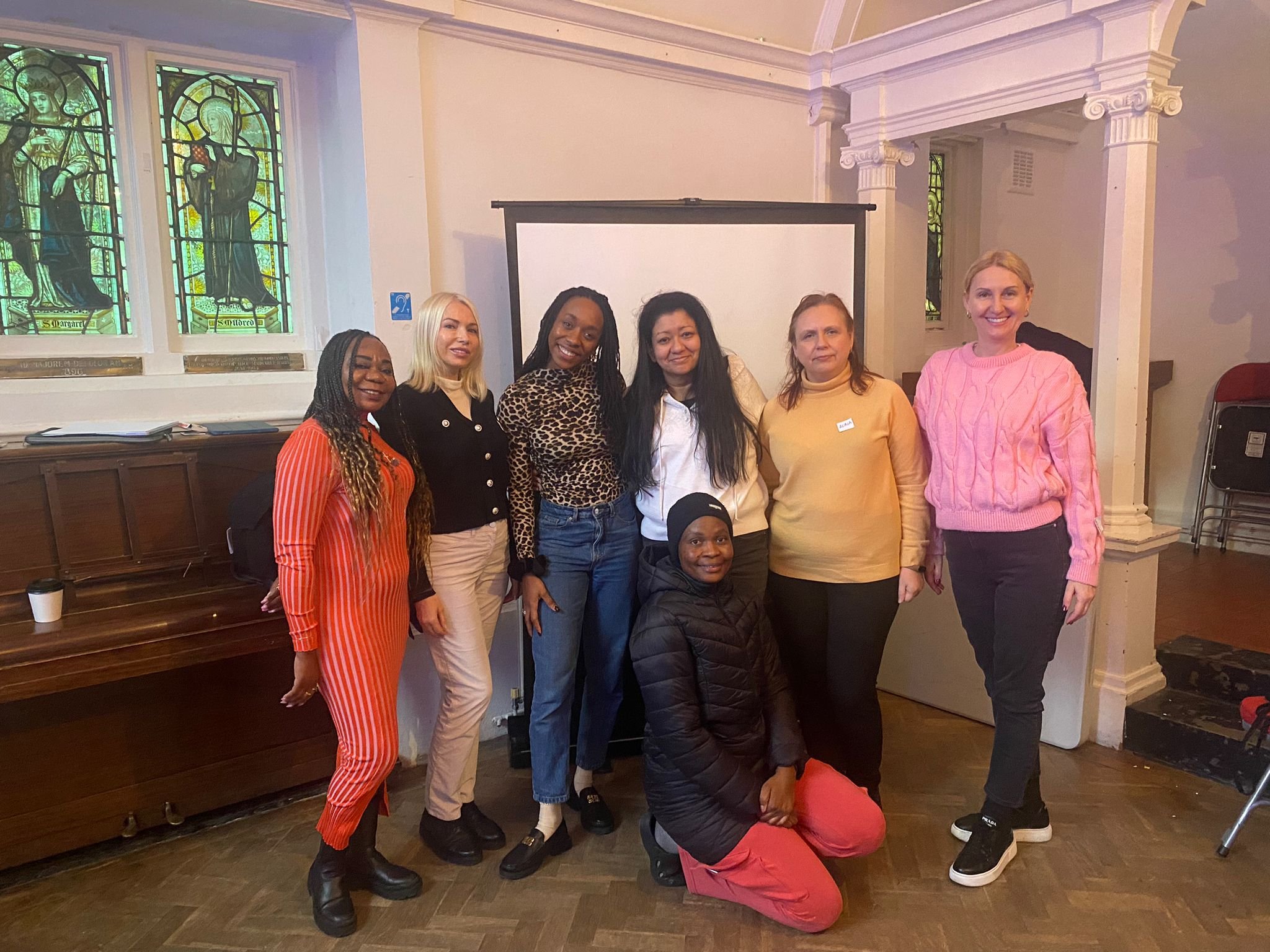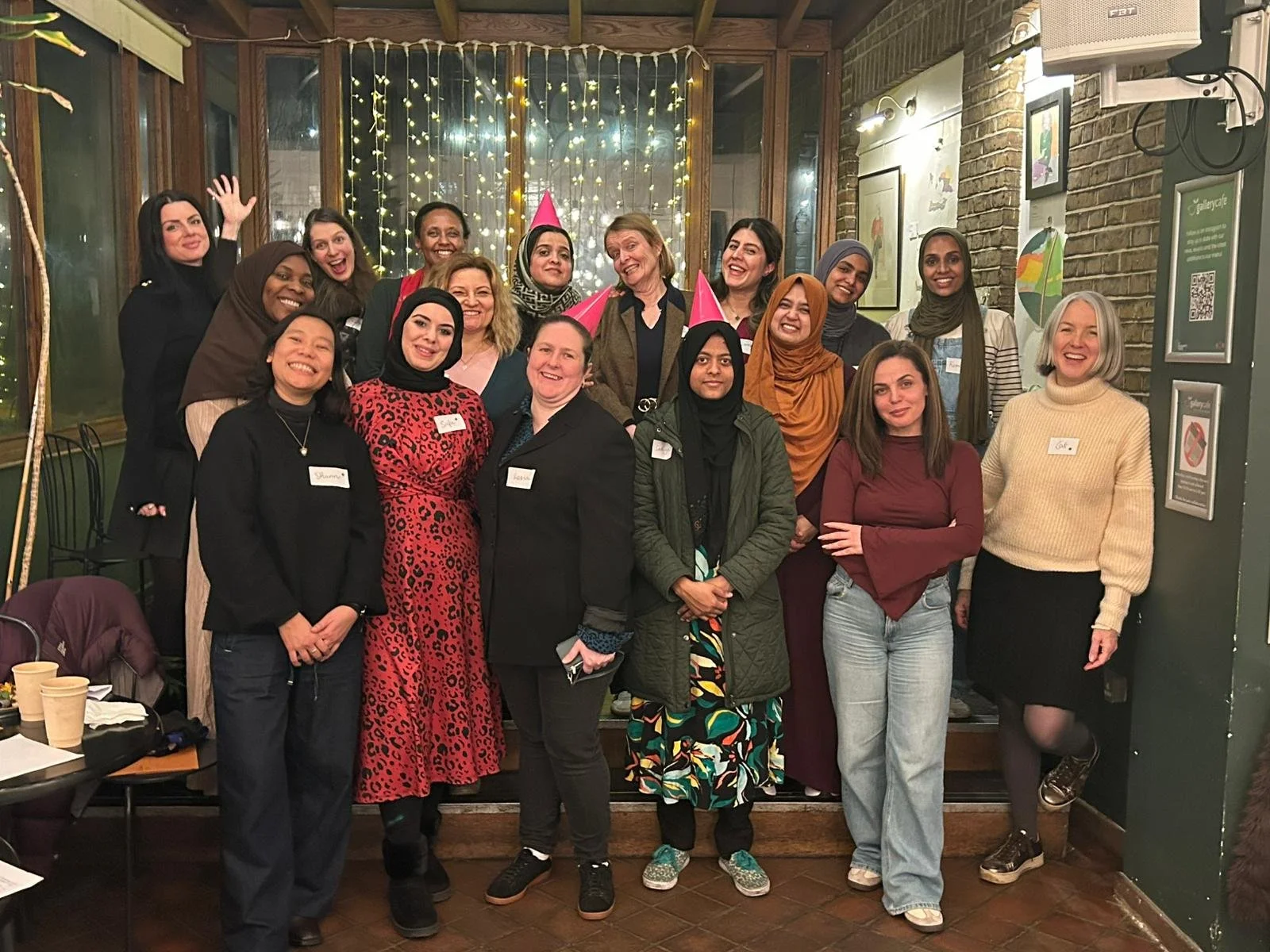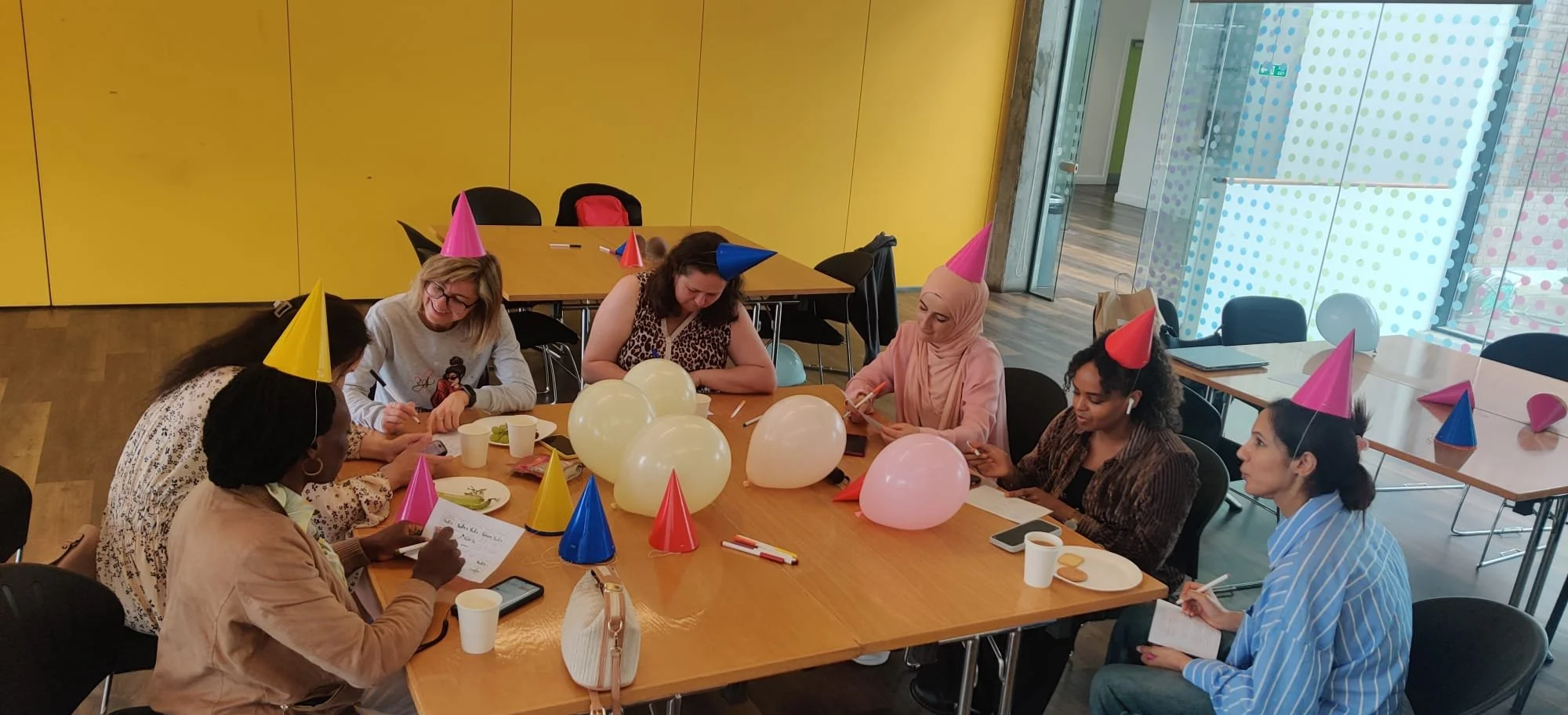Community Spotlight: Food for connection and a way to share love
In June, it’s Refugee Week in the UK - and the theme for 2024 is ‘Our Home’. In this blog, Routes alumni mentee Karla reflects on the importance of food for her identity, connecting through food and the joy of making baladeas.
Karla is a member of the Routes Community and was a mentee on the 11th Routes Mentoring Programme, which ran from October 2023 to February 2024. Together with her mentor Megan, Karla worked on goals related to employability and professional development. As an alumna of the Routes Mentoring Programme, Karla joined Routes for our Bursary Application Day, and secured a bursary from the City & Guilds Foundation for the Oxford Women Leadership Development Programme. You can read more about this Bursary Programme here. Karla now works at Brent Council as a Community Support Officer, supporting asylum-seekers and refugees.
In Karla’s words: ‘Honduran food is important to me, because it is part of my identity. Food to me is not only about feeding ourselves to stay alive, but it's also about memories and connections with our past and our routes to where we are now.’ Read more about the story of the delicious baladeas below!
Good morning dear reader, on this occasion I want to share a little about where I come from: a small country located in Central America called Honduras. Honduras is next to El Salvador, Guatemala, Costa Rica and Nicaragua. We are also very close to Mexico so many of the foods in our country are influenced in a certain way by these countries, especially Mexico whose culinary tradition dates back 10,000 years.
Most of the people I have spoken with don't know where Honduras is located and the ones who do know, only know bad stories about my country. This blog is about showing them there's more than that - and also to show everyone how happy it makes us feel, almost like anyone in their own country, to take pride in our food. I think in my humble opinion the food in my country has different flavors and it tastes good, and I would like people to get to try it at least one time -or if they can't try it at least to know about it.
Writing about my food makes me feel as if people can get to know me through the food of my country.
The story of tortillas
I want to start with a story. The other day I was in the kitchen where I live, cooking tortillas. Tortillas are the basis of Honduran food, we accompany them with basically everything we eat. For example, at breakfast: tortillas with fried beans, butter, cheese, fried or scrambled eggs and avocado. At lunch: tortillas with a chicken soup with rice. Tortillas are basically corn flour. In Honduras, corn is cooked in water with lime and salt. It is then taken to grind. And the corn dough is what is used to make tortillas. There are many places where one can go to buy tortillas.
Women of all ages are dedicated to preparing, making, and then selling very warm tortillas. We Hondurans love them.
Photo: Karla during her time on the Routes Mentoring Programme (standing, third from the right), with fellow mentees and facilitator Teri-Ann Bobb-Baxter during the Public Speaking Workshop.
La baleada: a Honduran gift for the gastronomy of the world
You can't talk about Honduran food without talking about La Baleada. Baleadas are a simple, yet delicious, street food from Honduras's north coast. They consist of a thick flour tortilla that is filled with re-fried red beans, a sprinkle of grated cheese, and cream. Honduran red beans are the color of kidney beans, yet smaller in size.
Why is the dish called baleadas (‘bullets’)? There is no official story, but there are two popular versions. The first is that the beans in the 70s were nicknamed bullets, because when you mix the beans with cheese and put them in your mouth, they usually come out towards each other. This can be thought of as ‘explosion bullets’. The second version is that according to urban legend, it all started when a woman sold flour tortillas. This was near the banana fields in La Lima and her tortillas were served with beans and cheese. It is said that one day a shooting occurred in the area and a bullet hit the lady. The wound was not deep or very serious, since a few days later she returned to her daily work and continued preparing her delicious dish. Legend has it that since that time, day workers in the area began to say ‘Let's eat at "la baleada",’ turning the incident into the popular name that characterizes it.
This dish has become one of the most iconic in our country. And it fills us with pride when a foreigner visits our beautiful land and the first thing we ask is; “Have you tried the bullets yet?” Well, we offer this culinary gem almost immediately.
Photo: Karla (on the right) during a Mock Interview Session with interviewers from UBS.
Food as a way to share love
Food is really important to me. When I have the opportunity to eat out in some Honduran restaurant or when I cook some food from my country at home, it makes me feel like I haven't lost it all. it makes me feel myself, it makes me feel like even though I'm living in a different country I can still be me. My food makes me feel safe and more like myself.
I have friends from different countries and we sometimes cook a different meal from the different countries we are coming from. For instance, my friends from Bolivia, Brazil, Spain, Guatemala, Ukraine, Mexico and Romania. They all cook for me - or I cook for them. Sharing food is, in my point of view, a way to share love.
Got your taste buds excited after reading this blog - and are you interested in exploring flavours from chefs and dishes from across the world? At Routes, we highly recommend having a look at the cookery classes of Migrateful, who are working with refugees and migrants to provide delicious culinary experiences. Their cookery classes are a great idea for a gift or a team building event, and you might even come across a few chefs at Migrateful who are also community members of Routes!







